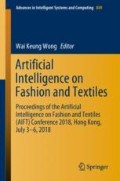Abstract
Sparse Principal Component Analysis (SPCA) is a regression-type optimization problem based on PCA. The main advantage of SPCA is that it can get modified PCs with sparse loadings so as to improve the performance of feature extraction. However, SPCA does not consider the label information of the data, which degrades its performance in some practical applications. To address this problem, we integrate the property of Least Squares Regression (LSR) into SPCA to use the prior knowledge to obtain the modified PCs with sparsity as well as discriminative information. Moreover, unlike LSR and its derivatives, the number of the modified PCs of SDPCA is not limited by the number of class, namely, SDPCA can address the small-class problem in LSR based methods. To solve the optimization problem, we also propose a new algorithm. Experimental results on product dataset, face dataset and character dataset demonstrate the effectiveness of SDPCA.
Access this chapter
Tax calculation will be finalised at checkout
Purchases are for personal use only
References
Turk, M.: Eigenfaces for recognition. J. Cogn. Neurosci. 3, 71–86 (1991)
Belhumeur, P.N., Hespanha, J.P., Kriegman, D.J.: Eigenfaces vs. fisherfaces: recognition using class specific linear projection. IEEE Trans. Pattern Anal. Mach. Intell. 19, 711–720 (1997)
Tibshirani, R.: Regression shrinkage and selection via the Lasso. J. R. Stat. Soc. Ser. B Stat. Methodol. 58, 267–288 (1996)
Zou, H., Hastie, T.: Regularization and variable selection via the elastic net. J. R. Stat. Soc. Ser. B. 67, 301–320 (2005)
Zou, H., Hastie, T., Tibshirani, R.: Sparse principal component analysis. J. Comput. Graph. Stat. 15, 1–30 (2004)
Qiao, Z., Zhou, L., Huang, J.Z.: Sparse linear discriminant analysis with applications to high dimensional low sample size data. IAENG Int. J. Appl. Math. 39, 48–60 (2009)
Accelerator, S.L.: Regularized Discriminant Analysis. Publ. Am. Stat. Assoc. 84, 165–175 (1989)
Xiang, S., Nie, F., Meng, G., Pan, C., Zhang, C.: Discriminative least squares regression for multiclass classification and feature selection. IEEE Trans. Neural Networks Learn. Syst. 23, 1738–1754 (2012)
Zou, H., Hastie, T.: Regression shrinkage and selection via the elastic net, with applications to microarrays. J. R. Stat. Soc. Ser. B. 67, 301–320 (2003)
Kwak, N.: Principal component analysis based on L1-norm maximization. IEEE Trans. Pattern Anal. Mach. Intell. 30, 1672–1680 (2008)
Xiao, H., Rasul, K., Vollgraf, R.: Fashion-MNIST: a novel image dataset for benchmarking machine learning algorithms. 1–6 (2017)
Martinez, A.A., Benavente, R.: The AR face database. CVC Tech. Reptort #24. (1998)
Acknowledgements
This work was supported in part by the Natural Science Foundation of China (Grant 61573248, Grant 61773328, Grant 61773328 and Grant 61703283), Research Grant of The Hong Kong Polytechnic University (Project Code:G-UA2B), China Postdoctoral Science Foundation (Project 2016M590812 and Project 2017T100645), the Guangdong Natural Science Foundation (Project 2017A030313367 and Project 2017A030310067), and Shenzhen Municipal Science and Technology Innovation Council (No. JCYJ20170302153434048 and No. JCYJ20160429182058044).
Author information
Authors and Affiliations
Corresponding author
Editor information
Editors and Affiliations
Rights and permissions
Copyright information
© 2019 Springer Nature Switzerland AG
About this paper
Cite this paper
Lai, Z., Chen, M., Mo, D., Zou, X., Kong, H. (2019). Sparse Discriminant Principle Component Analysis. In: Wong, W. (eds) Artificial Intelligence on Fashion and Textiles. AITA 2018. Advances in Intelligent Systems and Computing, vol 849. Springer, Cham. https://doi.org/10.1007/978-3-319-99695-0_14
Download citation
DOI: https://doi.org/10.1007/978-3-319-99695-0_14
Published:
Publisher Name: Springer, Cham
Print ISBN: 978-3-319-99694-3
Online ISBN: 978-3-319-99695-0
eBook Packages: Intelligent Technologies and RoboticsIntelligent Technologies and Robotics (R0)

